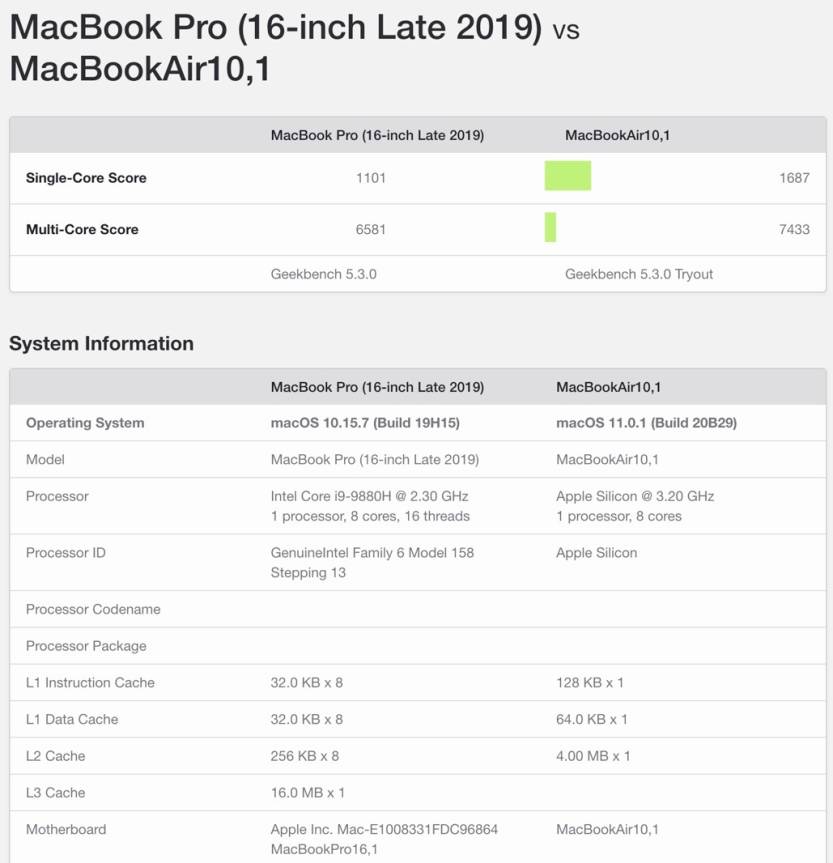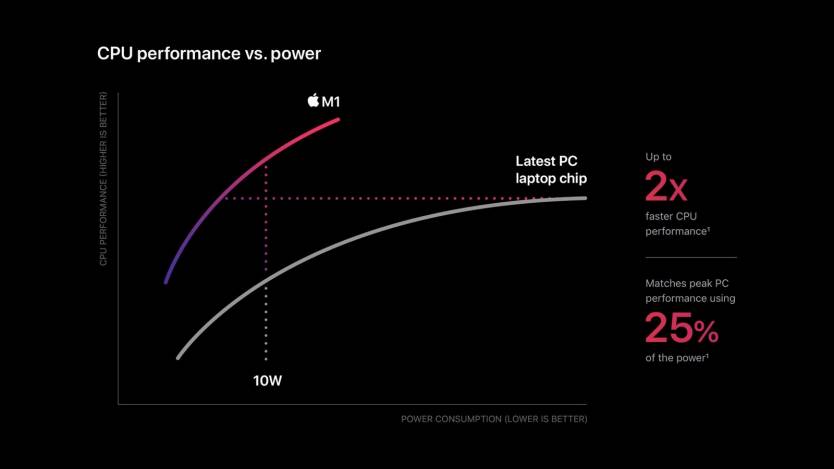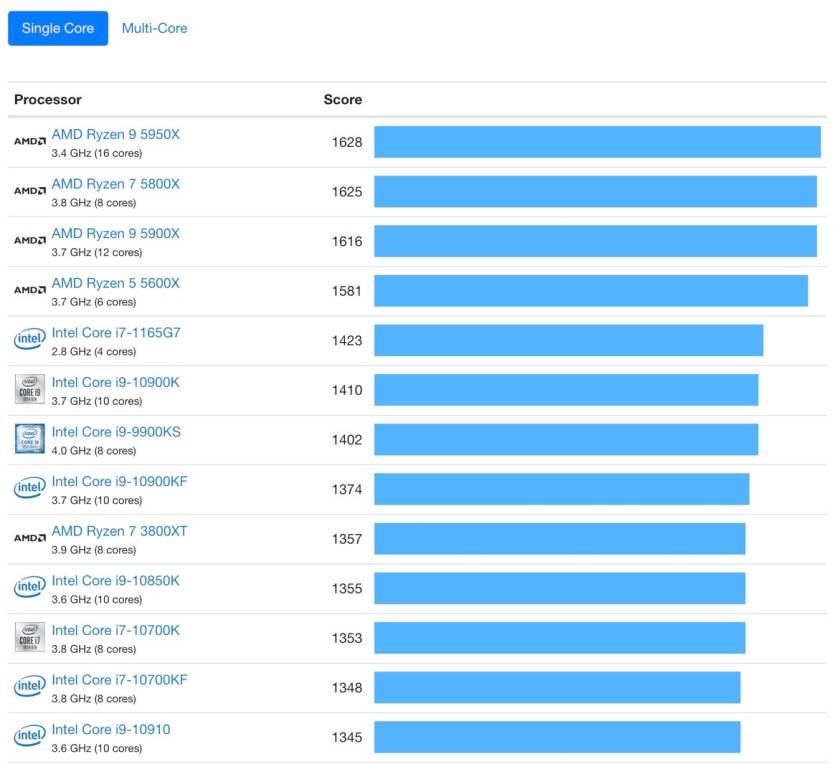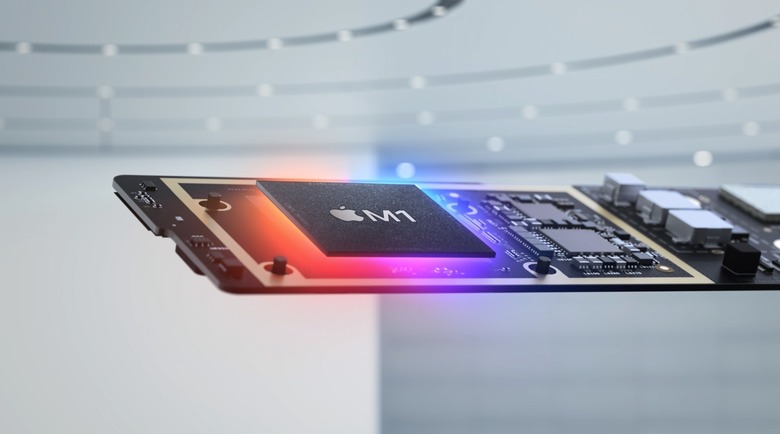The M1 MacBook Air Is Even Faster Than The Most Powerful Intel-Based 16" MacBook Pro
- The Apple M1-powered MacBook Air scores better in benchmarks than the best Intel-based 16-inch MacBook Pro available from Apple.
- The Geekbench 5 test confirms a previous leak that revealed the performance Apple silicon will offer compared to Intel processors.
- The brand new MacBook Air, MacBook Pro, and Mac mini will all offer the same performance, as they all use the same M1 chip.
Apple on Tuesday unveiled the Apple M1 processor that will power three new Macs this year, including the brand new MacBook Air, MacBook Pro, and Mac mini. The M1 is a variation of the A14 Bionic inside the iPhone 12. It's still a 5nm chip, but the M1 features more cores and higher performance than the A14. That's because Apple wasn't constricted by size and power considerations when developing chips for laptops. The company mentioned quite a few times on stage the tremendous speed gains of the M1 compared with the leading Intel-based PCs and the improved power efficiency. And there's now an official benchmark to prove it. The M1-powered MacBook Air is more powerful than the best version of the 16-inch MacBook Pro.
I already explained that the M1 Air is practically an M1 MacBook Pro. There are only a few differences between the two, and only a couple of them concern performance. The Air lacks active cooling, which means its peak performance might be throttled earlier than on the Pro, which has a fan to dissipate the extra heat and maintain performance. And the Air has a slightly inferior GPU performance than the M1 Pro.
Benchmark tests on GeekBench 5 confirmed what we had already suspected. A few days before Apple's MacBook event, a leak said that the Apple chip for Macs would be significantly faster than the top Intel Core i9 chip that powers the 16-inch 2019 MacBook Air. But there was nothing official about that leak. The listing wasn't easy to find, and the chip was listed as A14X instead of Apple M1.

Geekbench 5 benchmark comparison between 16-inch Intel MacBook Pro (left) and 13-inch M1 MacBook Air (right)
Now that the Apple M1 is official, the new MacBook Air benchmark test was discovered (above). According to it, the M1 scores 1687 and 7433 in single-core and multi-core tests, respectively. The 16-inch MacBook pro reaches 1101 and 6581 in the same tests.
It's not unusual to see Apple's chips outperform Intel's in these tests. It used to be iPhone and iPad chips that would beat MacBooks in Geekbench testing. We often told you that the speed test alone doesn't tell the whole story, but that the test did support the idea that Apple might be close to releasing its own processors for laptops and desktops.
We're not comparing apples to oranges any longer. The M1 MacBook Air should deliver the same experience as the MacBook Pro — well, it'll be even better, as the ARM-based Macs will also run any native iPhone app. And from the looks of these tests, the Air will be quicker than Intel-powered MacBooks.

Apple M1 performance and power efficiency compared to leading PC chips.
That's great news for anyone looking to buy an M1 Mac right now, including Air fans. After all, the MacBook Air is the best-sold MacBook in Apple's inventory. And the M1 will bring its performance to Pro territory. And from the looks of it, the M1 is getting awfully close to entry-level Mac Pro multi-core performance.

Geekbench 5's current single-core rankings have AMD and Intel chip at the top. Those scores are lower than the Apple M1.
Finally, the single-core performance of the Apple M1 tops everything on Geekbench's single-core top, as seen above.
